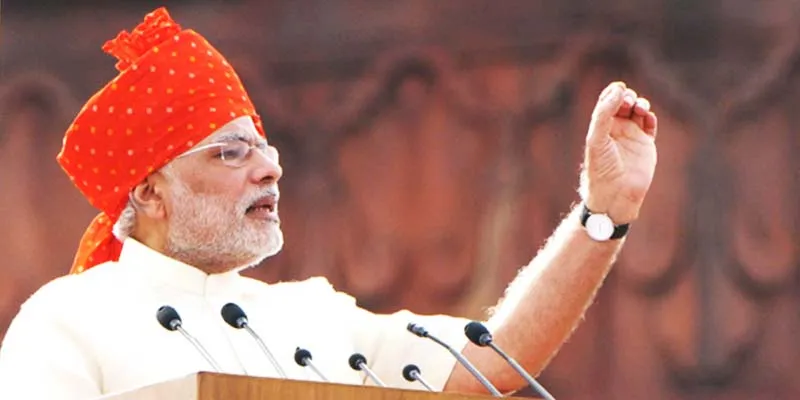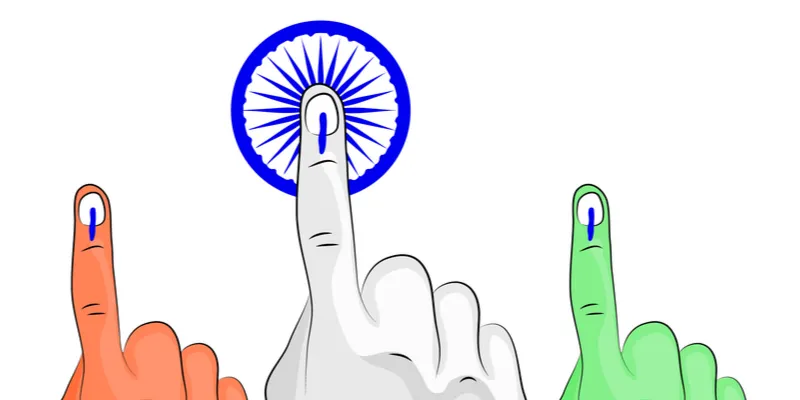Elections 2019: BJP’s manifesto sheds light on what startups can expect from the new government
From creating a Seed Startup Fund and easing regulatory requirements to setting up new incubators and accelerators, the BJP has many plans lined up for the startup community in the next five years.

The government has promised a lot in their manifesto. Can they deliver?
The ruling BJP government, led by Prime Minister Narendra Modi, has swept into power for a second term on Thursday with a decisive majority. The BJP-led National Democratic Alliance (NDA) is set to nab more than the 336 seats out of 542 it had held in the previous Lok Sabha.
BJP’s victory had initially lifted the Indian stock markets to record highs, as Modi is widely perceived as a business-friendly leader. Since 2014, India has jumped about 57 places in World Bank’s Ease of Doing Business report. In its latest report, India stands at 77 position out of 190 countries.
The BJP’s election manifesto, released in April this year, outlined the party’s plan for developing the country, including startups and small businesses. Prior to the elections, the Hindu nationalist party had come under fire for rising unemployment rates and its failure to create jobs for the youth. But there has been rousing welcome for the government's plans for digitalisation and the Make in India initiatives.
More job creation, ease of doing business
Mayank Bhangadia, CEO of social entertainment platform Roposo, says, “The current government’s Digital India campaign was a really good initiative. We need more such initiatives from the new government, to take the country forward. From ‘Make in India’, which promoted manufacturing in India, we need to shift to ‘Made in India’, where we boost indigenous companies. I believe this would better solve the current problem of unemployment and would generate a demand for Indian products and services.”
The manifesto, named ‘Sankalp Patra’ or pledge document, said it would promote and encourage startups by creating a Rs 20,000 crore ‘Seed Startup Fund,’ and will launch a new scheme to provide collateral-free credit of up to Rs 50 lakh for entrepreneurs. For women entrepreneurs, half of the Rs 50 lakh credit would be guaranteed by the government.
Niraj Singh, Founder of used car retailing startup Spinny, says, "We are expecting the new government to make regulatory and statutory compliance framework more conducive for startups, to enable experimentation with new ideas and business models with ease. This will lead to faster value creation and employment generation in the country."
?fm=png&auto=format)
Also read: General Elections 2019: Reactions from India Inc and the startup world to Modi 2.0
India has the world’s second largest startup ecosystem, and the BJP is looking to increase its support to the community by easing regulatory requirements for them. The party said in its manifesto that over 17 crore entrepreneurs have availed loans under the Pradhan Mantri Mudra Yojana, and expects to take the total number of beneficiaries of loans to go up to 30 crore people.
The ruling party also said it was aiming to create 50,000 new startups by 2024, and establish 100 innovation zones in urban local bodies. In addition, the party said it would set up about 500 new incubators and accelerators by 2024.
Dwijadas Chatterjee, Co-founder and CFO of refurbished brands provider HyperXchange, says,
“India needs an investment (VC) ecosystem that can pump in $15 billion to $20 billion every year to support and sustain a 5,000+ startup ecosystem and rival other countries like the US and China. Government policies could play a decisive role in strengthening the startup ecosystem because it is no longer just about the number of startups but also about creating a pipeline with successful yearly exits across sectors. Currently, startups are stuck at the beginning of the funnel due to lack of investment ecosystem."

The BJP' manifesto, named ‘Sankalp Patra’ or pledge document, said it would promote and encourage startups by creating a Rs 20,000 crore ‘Seed Startup Fund'.
To generate employment in the Northeastern states, the BJP has also promised to start an ‘Entrepreneurial Northeast’ scheme to provide financial support to the micro, small, and medium Enterprises (MSMEs) in the region.
On Angel Tax and more
While the manifesto didn’t directly address the Angel Tax issue, the government had issued new guidelines in February to simplify the process of defining startups. In contrast, the Congress manifesto proposes to do away with Angel Tax on startups altogether.
Meanwhile, the Congress manifesto focused on developing newer technologies such as machine learning and IoT, and planned to exempt new businesses from applicable laws and regulations (except Minimum Wages Act and tax laws) for a period of three years.
"We expect the new government to allocate additional funds exclusively for developing infrastructure and improving connectivity in the peripheral areas of cities, especially the metros that will spur growth in the future. The government should also focus to build startup hubs across the nation to drive entrepreneurship," says Manas Mehrotra, Chairman of co-working space provider 315 Work Avenue.
Were promises kept?
However, the BJP has drawn some flak for not holding up to some promises in its previous manifesto. According to Election Promise Tracker, a site that provides fact checks and status reports on promises made by political parties, the current government has demonstrated a mixed track record when it comes to pledges made during the 2014 elections.
In the business sector, the tracker’s data shows that the NDA government has made adequate progress on improving the ease of doing business in India, improving supply chain management and ensuring access to credit for small and medium enterprises. However, the government has not followed up on certain promises, including setting up a task force to revive MSMEs and creating global manufacturing hubs.
“It is not going to a bed of roses for the new government. Last tenure of BJP gave birth to the digitalisation and again this year we are expecting the government to provide some special schemes around the startup ecosystem and promoting the SMB sector,” notes Ankit Jain, Founder of call management solutions provider MyOperator.
Also read: Modi 2.0 provides booster shot for Startup India, Digital India







